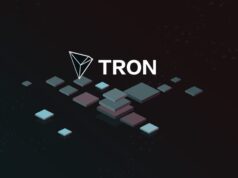Finally getting a chance to buy your own home is a once in a lifetime opportunity for most people. The sad reality of our world is that people often have to spend the majority of their life either saving for a home or paying for a home. The number of people who have their own property, especially those with multiple properties, is incomparably lower than that of people who lack their own place to call home. However, the situation for many eventually gets better after smart money decisions, saving, and hard work. When the time finally comes to get your own place as a family there is more than one option to do so. While straight up buying a home you want and cashing out everything immediately is not really viable, there are two other solutions you can try. They are mainly mortgage bonds and home loans.
Deciding whether to pick a mortgage bond or a home loan comes down to different factors and it is ultimately the decision of the future homeowners. Actually, it is their needs that directly dictate which of the two options is better in the end. In an effort to bring this closer to you and help you make a better decision, this article aims to show the differences between a mortgage bond and a home loan. Read on to find out more about this very important decision. If you are based in Scotland and need a mortgage advisor Glasgow, make sure to check out prestigemortgagesolutions.co.uk.
They Are Not the Same

It may have already been clear from the title, but there needs to be a disclaimer here. Some people think that any type of deal that helps someone pay for a property is one and the same. In reality, a mortgage bond and a home loan are not one and the same. Property related loans are sometimes referred to as mortgage bonds but it is wrong to assume they are simply synonyms of one thing. A home loan is the actual loan obtained from the bank or another lender for the home. On the other hand, a mortgage bond is more of an agreement, a security given to the bank. Things get complicated because the amounts of money do not have to necessarily be the same. Also, there does not need to always be a mortgage bond for a home loan to be secured. As you can see, things are quite complicated on this front so let us dive a bit deeper into the subject matter and make them more understandable.
What is a Mortgage Bond?

Mortgage bonds are legal agreements between the owners of the property and the bank. The owner of the property hands over the rights over the property to the bank and gets a loan in return. This loan can be one of many loan types like an overdraft, a personal loan, or a home loan. As long as it is higher than the loan, the amount of the mortgage bond that secures the loan can be chosen freely. There is no qualification for anything and the property does not need to be of the value of the bond amount. The usual problems with all of this happen when the person borrowing the money signs a mortgage bond for a larger amount than the loan grants. It most often happens with purchases of empty land where the borrower plans to build a property.
The home loan is the actual money that you will get from the bank or another type of lender. When the mortgage bond is registered and approved by the official body that overlooks it, the bank pays the amount and the client can use it. Now, speaking of loans and using them, there are actually different types of home loans to know particularly if you are doing all of this for the first time. Understanding these types will help you pick the right kind of loan and exactly what you need. Getting caught up in the mortgage bond and home loan maze will never happen to you if you know all the different aspects of borrowing money for your property.
Variable
Firstly, let us talk about variable home loans. This variety has an interest rate that is not fixed and can therefore change over time. The lender can offer the borrowers this type of loan with changing interest rates over the entire period of the loan. However, an adjustable rate can also exist where the rates shift between a fixed and a variable one. The reasons for the rate not being the same are different and they usually exist to make up for the changes in the market so that the lender protects their assets. Inflation is one example of this. Therefore, this loan is quite common especially now. A good thing about them is that they can be lower at first when you are still getting on your feet and higher down the line when you have more money around.
Fixed
As mentioned above, the alternative to variable loans are fixed loans where the interest rate is always the same regardless of what is happening on the market. From the start of the loan to its end, the borrower pays the same amount each month and nothing changes. The lender cannot change it midway. This is preferred option for most clients but it is more difficult to get especially in circumstances that point towards a less favorable market in the future like an economic crisis or inflation. However, fixed home rates are not that great if the initially high interest remains so forever.
Capped
Home loans that have capped rates imply strict criteria that is usually quite hard to meet by most clients. It is not really available, nowhere near as much as the previous two types of loans. They have a maximum rate built into the loan. When interest goes down, the borrower has benefits. When it goes up however, you do not suffer the consequences because there is the agreed capped rate, a maximum it can reach. It is the most favorable type but as mentioned the criteria for it is strict and it is seldom available.
















